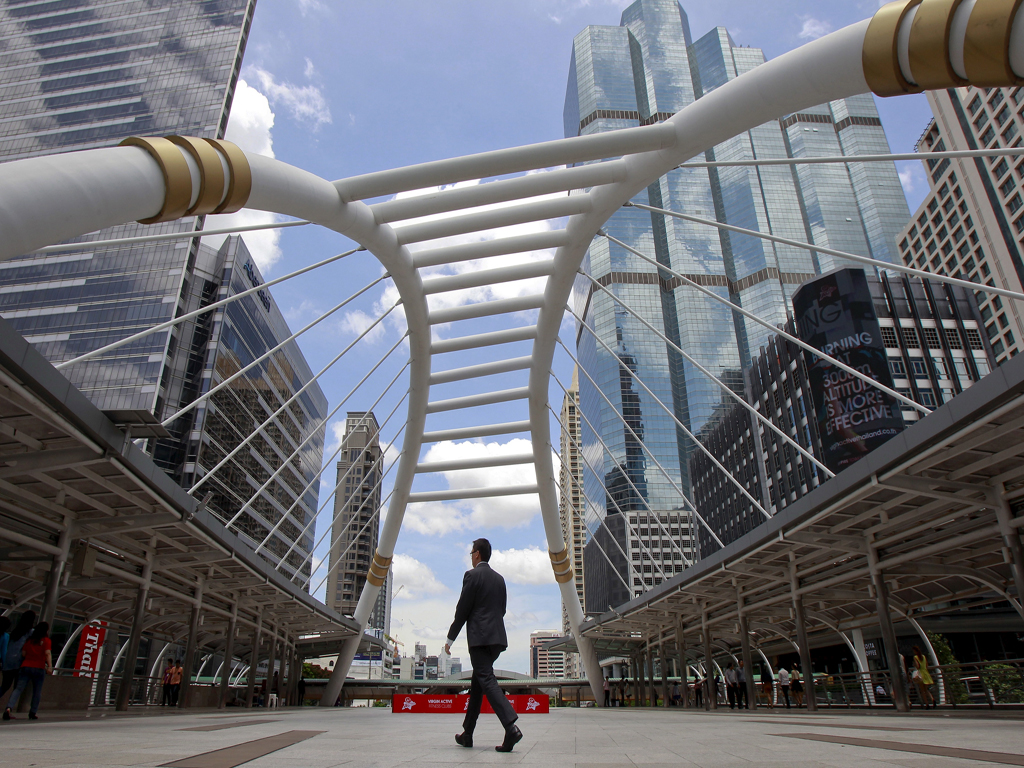Thai economic growth in 2024 disappoints as trade risks loom
Thailand remains a growth laggard in the region as household consumption and manufacturing continue to be under pressure.
Thailand’s economic growth was weaker than expected in 2024 and continued to lag behind its neighbours as it faces a year fraught with risks from global trade policy hurdles and sluggish domestic demand.
South-east Asia’s second-largest economy grew 2.5 per cent last year, the National Economic and Social Development Council (NESDC) said. That was slower than the median estimate for a 2.7 per cent gain in a Bloomberg News survey although it picked up from a revised 2 per cent expansion in 2023.
Gross domestic product rose 3.2 per cent in the three months to December from a year earlier, against a 3.8 per cent forecast by economists. On the quarter, the economy grew 0.4 per cent from the July to September period compared with a median estimate for a 0.5 per cent rise.
Even with the firmer recovery in tourism and exports, the nation remains a growth laggard in the region as household consumption and manufacturing continue to be under pressure.
In the latest phase of Donald Trump’s tariff policy and the US-China rivalry, Thailand is vulnerable given its significant trade surplus with the US and the persistent flooding of cheap China-made products that may worsen as Washington hits Beijing with more levies.
Bank of Thailand governor Sethaput Suthiwartnarueput said that he considers trade policy spillover as a main challenge.
The state planning agency maintained its forecast expansion of 2.3 to 3.3 per cent for 2025, according to NESDC chief Danucha Pichayanan at a briefing in Bangkok. Energising domestic consumption would help drive growth this year, he said as the agency forecasts a 3.3 per cent growth in private spending and a 1.3 per cent rise in government consumption.
Uncertainty from US trade policies is the key risk for Thailand, Danucha said. “We will monitor closely and come up with measures to negotiate with the US. We are under the spotlight as we recorded a high trade surplus versus the US.”
The Thai baht was little changed after the data was announced while the main stock index opened lower.
At home, Prime Minister Paetongtarn Shinawatra is seeking to boost growth with a series of cash handouts and piling pressure on the central bank to lower borrowing costs. The central bank, which kept the policy rate steady at 2.25 per cent in December after a surprise quarter-point cut in October, is scheduled to review the rate on Feb 26.





